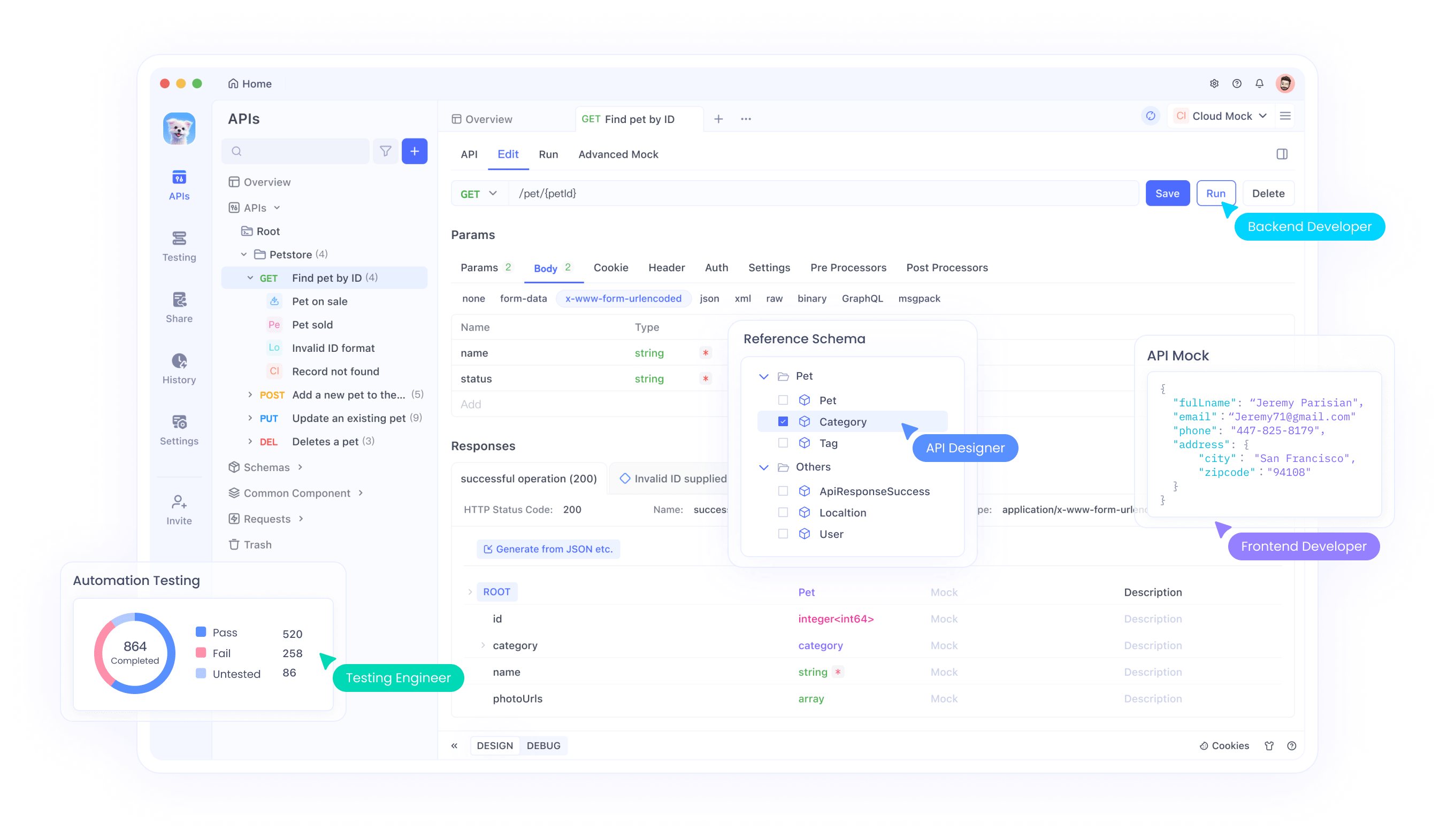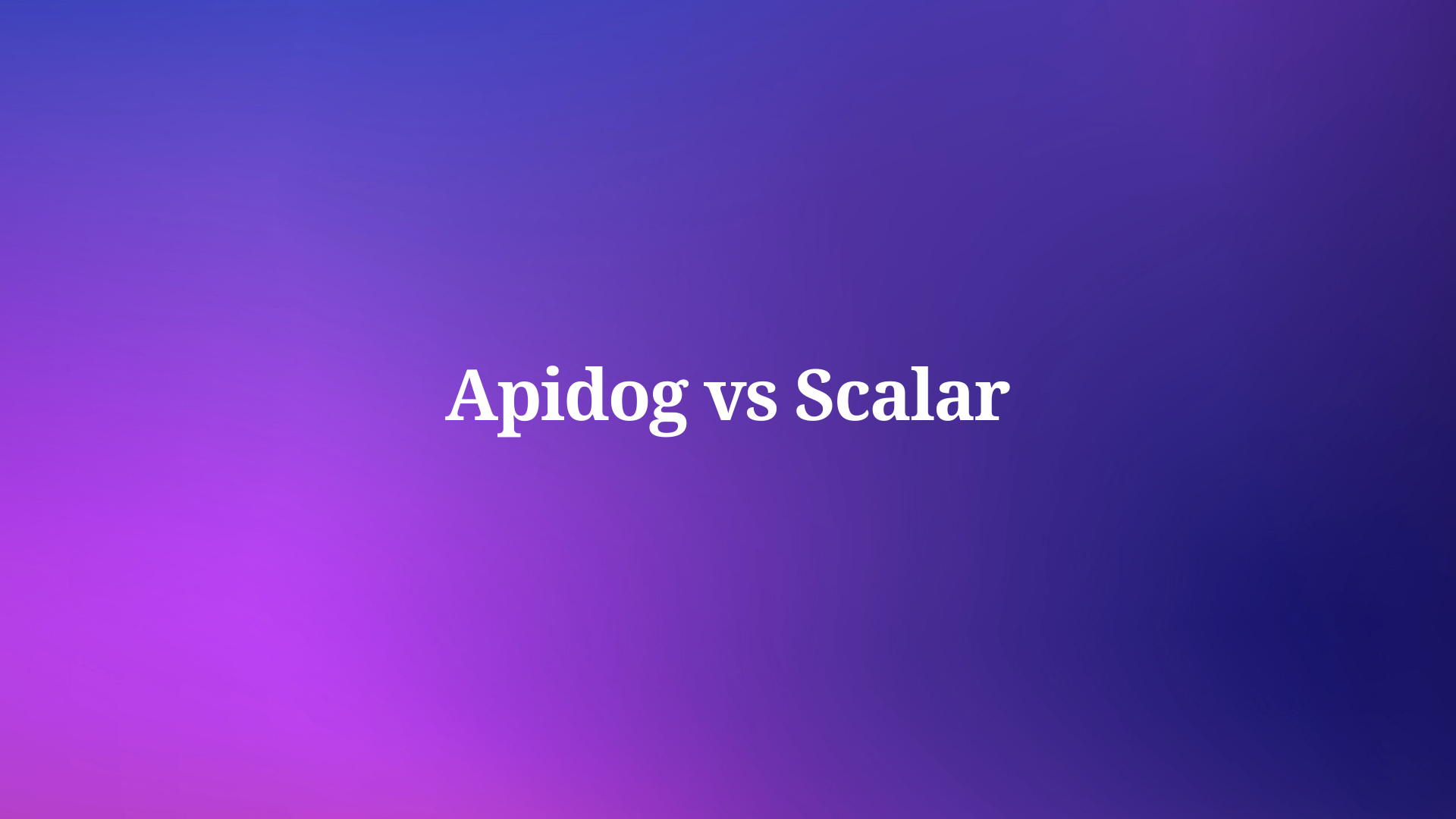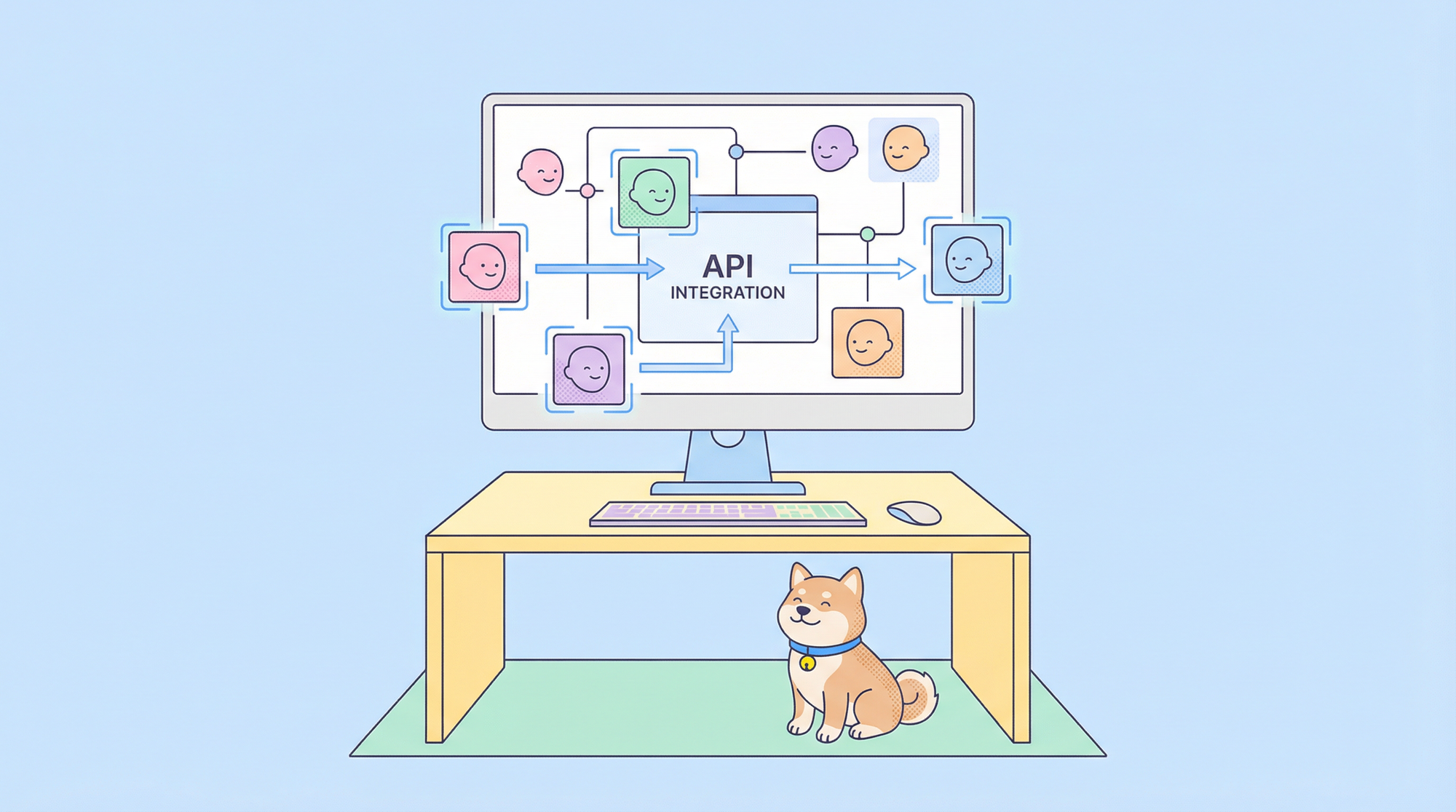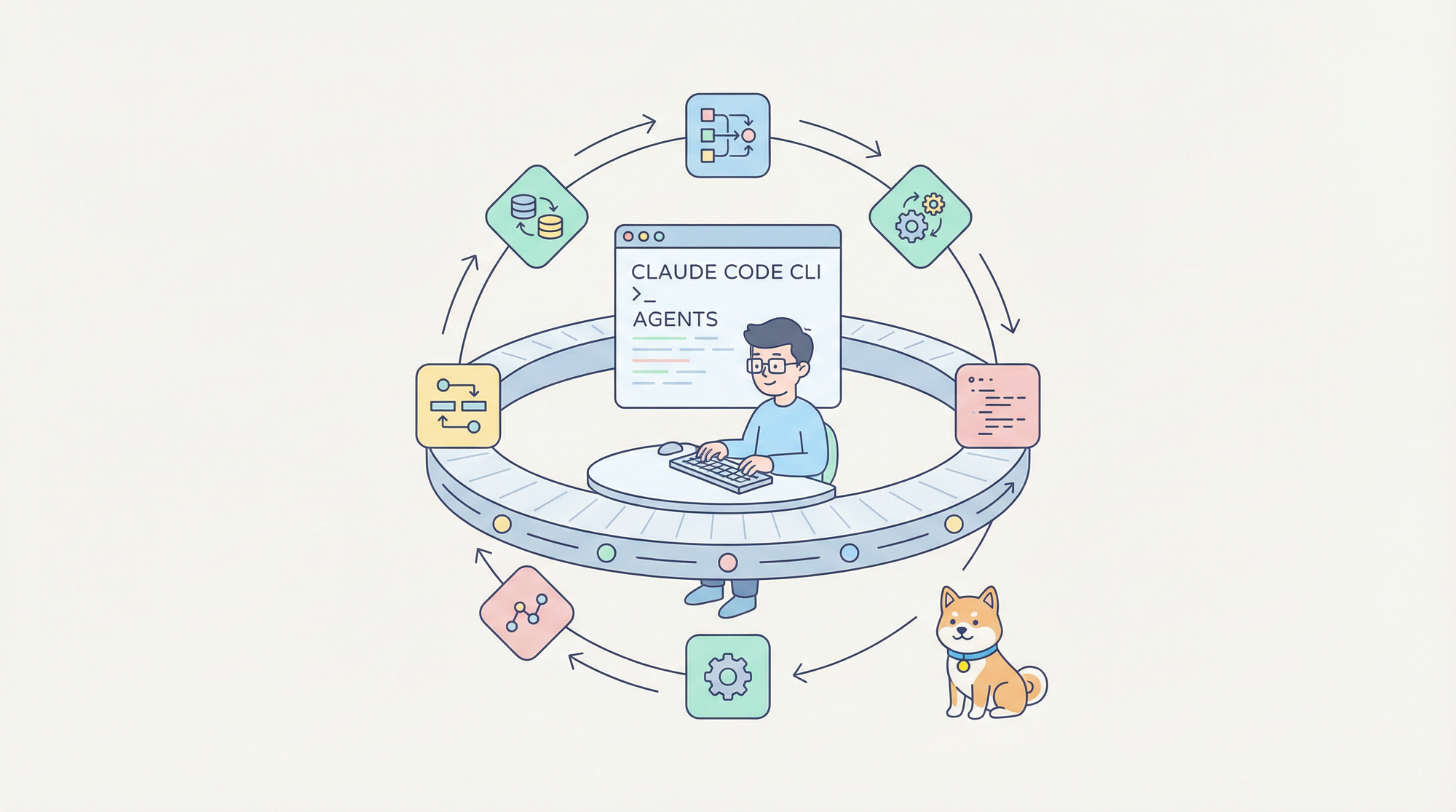Developers constantly seek efficient tools to manage APIs throughout their lifecycle. Apidog and Scalar both address these needs, yet they approach the challenge differently. Apidog offers a comprehensive platform that integrates design, testing, mocking, and documentation into one seamless experience. Scalar, meanwhile, focuses on creating interactive API references and clients with strong OpenAPI support. This comparison examines their strengths, helping you determine which tool aligns with your requirements.
As we proceed, we will explore each tool's core capabilities, compare them head-to-head, and evaluate their suitability for various scenarios. This analysis draws from recent features and user feedback to provide a clear perspective.
Understanding Apidog: A Full Lifecycle API Platform
Apidog serves as an all-in-one solution for API management. Developers use it to design, debug, mock, test, and document APIs efficiently. The platform emphasizes a design-first methodology, where users create API specifications that synchronize across the entire development cycle. For instance, Apidog allows importation of OpenAPI files, enabling quick visualization and editing of specifications.

Moreover, Apidog supports multiple protocols, including HTTP, gRPC, GraphQL, and WebSocket. This versatility ensures developers handle diverse API types without switching tools. The user interface prioritizes intuition, with drag-and-drop elements that simplify complex tasks. Teams collaborate in real-time, sharing updates and maintaining version control to avoid conflicts.
Apidog integrates automated testing features. Users define assertions visually and run tests within CI/CD pipelines, reducing manual effort. Mocking capabilities generate realistic responses from specifications, aiding frontend development before backend completion. Documentation generation occurs automatically, producing interactive references that teams share externally.
Consequently, Apidog suits organizations scaling API operations. Its stateless architecture handles high-volume traffic, making it ideal for performance-critical environments. Developers appreciate the lack of runtime limitations, allowing unrestricted usage in production scenarios.
Exploring Scalar: An Open-Source Focus on API Documentation and Testing
Scalar positions itself as a modern, open-source platform for API documentation and discovery. Developers leverage it to generate beautiful, interactive references from OpenAPI or Swagger files. The tool includes a built-in API client that operates offline-first, supporting web, macOS, Linux, and Windows environments.

Furthermore, Scalar enables full branding customization, even on free plans, with options for custom HTML, CSS, and JavaScript. Users sync documentation with Git and Markdown, keeping docs aligned with code repositories. This integration facilitates docs-as-code workflows, where teams write in Markdown and link OpenAPI specifications.
In terms of testing, Scalar's interactive playground transforms into a full API client. Developers test endpoints directly within the documentation, viewing responses in real-time. Collaboration features appear in paid plans, including GitHub sync and team access controls.
However, Scalar emphasizes accessibility and no vendor lock-in, adhering strictly to OpenAPI standards. This approach appeals to teams prioritizing open-source principles and flexibility. The platform integrates with numerous frameworks like FastAPI, Hono, and Next.js, easing adoption in existing stacks.
As a result, Scalar excels in scenarios where documentation and quick testing take precedence over full lifecycle management. Its minimalistic design avoids bloat, focusing on core functions that enhance developer experience.
Head-to-Head Feature Comparison: Apidog vs Scalar
When evaluating Apidog and Scalar, several key areas highlight their differences. We begin with API design capabilities.
API Design and Specification Management
Apidog excels in design-first development. Developers craft JSON Schema-supported specifications that propagate changes automatically across testing and documentation phases. The platform imports from tools like Postman and Swagger, ensuring smooth transitions. This automation minimizes errors and accelerates iterations.

Scalar, on the other hand, relies heavily on imported OpenAPI documents to build references. It supports editing within its editor but lacks the depth of Apidog's design tools. Users manage versions through Git integration, which works well for collaborative editing but requires external tools for advanced schema validation.

Therefore, Apidog provides a more integrated design experience, while Scalar offers simplicity for OpenAPI-focused projects.
Documentation Generation and Customization
Both tools generate documentation, but their approaches vary. Apidog auto-creates interactive docs from specifications, complete with examples in multiple languages. Teams customize layouts and share them securely, enhancing external communication.

Scalar shines here with its beautiful, brandable references. Developers embed custom code and sync with Markdown for a docs-as-code paradigm. The result is professional-looking documentation that integrates an API playground seamlessly. However, Apidog's docs tie directly into the full lifecycle, offering more dynamic updates.

In summary, Scalar edges out in aesthetic customization, but Apidog delivers broader functionality for ongoing maintenance.
Testing and Debugging Features
Apidog's testing suite stands out with visual assertions, response validation, and CI/CD compatibility. Developers run automated tests, including performance and security checks, directly in the platform. Debugging tools identify issues swiftly, supporting protocols beyond REST.

Scalar provides testing via its API client, allowing requests from within docs. It supports authentication and environment variables but lacks advanced automation. The offline-first client aids quick checks, yet it does not match Apidog's depth in scripted testing.

Thus, Apidog suits teams needing robust testing, whereas Scalar fits lighter, exploratory needs.
Mocking and Simulation Capabilities
Apidog generates mock responses from API specs, enabling parallel development. This feature includes smart data generation and custom rules for realistic simulations.

Scalar does not emphasize mocking; its focus remains on documentation and client-based testing. Users might need additional tools for mocks, limiting its standalone utility in this area.
Consequently, Apidog offers superior mocking for decoupled workflows.
Collaboration and Team Features
Apidog facilitates real-time collaboration with role-based access and sync across teams. Enterprise plans include SSO and audit logs for secure scaling.
Scalar's collaboration appears in Pro and Enterprise tiers, with GitHub sync and shared workspaces. Free users work offline, but paid options enable team editing.
While both support teams, Apidog provides more granular controls for larger organizations.
Integrations and Ecosystem Support
Apidog integrates with CI/CD tools, version control systems, and monitoring platforms. It exports code in various languages and imports from competitors like Postman.
Scalar connects with frameworks like FastAPI and Laravel, plus Git for syncing. Its open-source nature encourages community extensions.
In essence, Apidog's integrations cover the full lifecycle, while Scalar's enhance documentation workflows.
Pricing Models: Apidog vs Scalar
Pricing influences adoption significantly. Apidog offers a free plan with core features, then paid tiers starting at $9 per user/month for teams, up to enterprise custom pricing.

Scalar provides a free tier for one user, including unlimited workspaces and custom styling. Pro costs $24 per seat/month, adding custom domains and GitHub sync. Enterprise includes SSO and dedicated support, with custom pricing.

Therefore, Scalar's free plan appeals to individuals, but Apidog's scaling suits growing teams better.
Pros and Cons: Weighing Apidog and Scalar
Apidog's pros include comprehensive lifecycle coverage, strong testing, and seamless integrations. However, its newer status might mean fewer community resources compared to established tools.
Scalar boasts open-source flexibility, beautiful docs, and offline capabilities as advantages. Cons involve limited testing depth and reliance on external tools for full management.
Overall, Apidog delivers more for end-to-end needs, while Scalar excels in specialized documentation.
Use Cases: When to Choose Apidog or Scalar
For startups building APIs from scratch, Apidog streamlines the process with design and mocking. Enterprises managing complex integrations benefit from its security and collaboration features.
Solo developers or open-source projects prefer Scalar for quick, customizable docs and testing without overhead. Teams focused on Git workflows find its sync features invaluable.
In practice, combining both could work—using Scalar for public docs and Apidog for internal development—but most teams select one based on priorities.
Performance and Scalability Considerations
Apidog handles high-throughput scenarios with its performant architecture, processing millions of requests in clustered environments. This scalability supports production APIs effectively.
Scalar, being lightweight, performs well for documentation but may require optimization for large-scale testing.
Thus, Apidog leads in enterprise scalability.
User Feedback and Community Support
Users praise Apidog for its modern UI and Postman compatibility, noting reliability in automation. The community grows rapidly, with active support channels.
Scalar receives acclaim for its fresh design and OpenAPI adherence, with a vibrant Discord community for contributions.
Both foster engagement, but Apidog's focus on full features attracts broader adoption.
Conclusion
Apidog and Scalar both advance API management, yet Apidog's integrated approach often provides greater value for comprehensive needs. Developers benefit from its efficiency in design, testing, and collaboration. Scalar, with its open-source strengths, suits documentation-heavy workflows admirably.
Ultimately, your choice depends on project scope. For a versatile platform, Apidog stands out. Explore it further by downloading the free version and testing its capabilities against Scalar.



